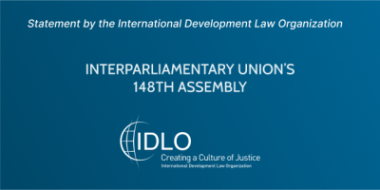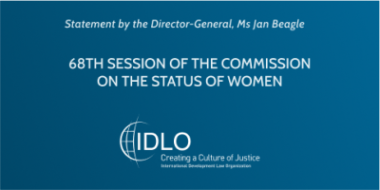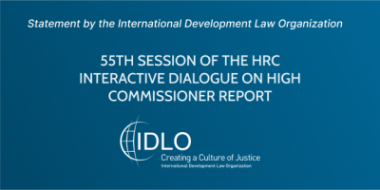Making in-roads in Liberia: Reflections from Monrovia
Teresa Mugadza, IDLO’s Country Director for Liberia. When I took up post in Monrovia last summer, what struck me most was that I found a committed and cooperative judiciary, but one handicapped by a lack of resources. Often, people erroneously think that Liberia has no legal framework, but that is not true.












